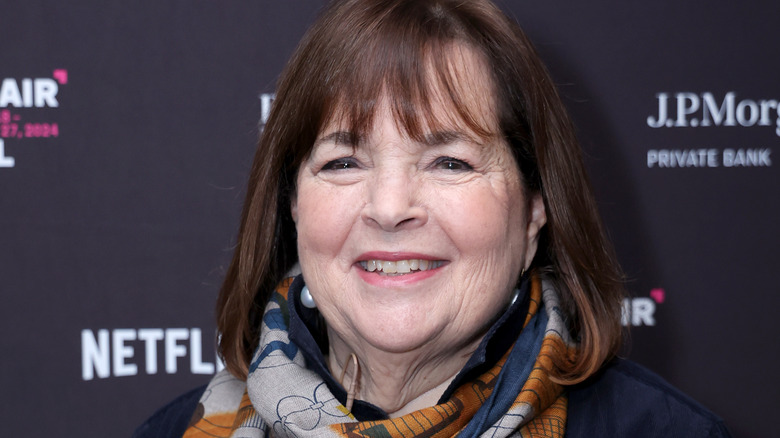
Ina Garten’s Real-Life Struggles Are Truly Heartbreaking

The Untold Story: The Challenges and Heartaches Behind Ina Garten’s Success
Ina Garten, the celebrated “Barefoot Contessa,” projects an image of effortless grace and culinary perfection on her various Food Network shows. Many admire her seemingly idyllic life, complete with a charming home, successful career, and unwavering composure. However, behind the camera, Garten’s life has been marked by personal struggles and hardships, revealing a side rarely seen by the public.
A Childhood Defined by Emotional Deprivation and Abuse
Garten’s upbringing in New York and Connecticut during the 1950s and 60s was far from the warm, nurturing environment she creates in her cooking shows. She recalls her mother, Florence Rosenberg, prioritizing her children’s well-being and education but failing to provide emotional warmth. Garten believes her mother lacked the capacity for genuine connection and affection. “She didn’t understand me, actually,” Garten has said, suggesting a fundamental disconnect between them.
Her relationship with her father, Charles Rosenberg, was even more challenging. Garten described him as having “very strict views of what we should do,” particularly regarding academic and athletic achievements. Deviation from these expectations resulted in “extreme anger,” including physical abuse. Garten remembers feeling terrified and seeking refuge in her room to avoid her father’s wrath. She recounted instances of being physically pulled by her hair as punishment for minor offenses. While acknowledging that her father likely loved her, she felt he was more interested in molding her into his ideal than accepting her for who she was.
Sibling Estrangement and a Restricted Diet
Adding to the emotional isolation, Garten had limited interaction with her brother, Ken Rosenberg, despite growing up in the same household. Their parents emphasized academic achievement above all else, keeping the siblings separated and focused on individual studies. Garten recalls being raised “as if we were only children, with little interaction between us.” They even had separate bedrooms and only one shared activity: playing chess at breakfast, a pastime deemed “educational” by their parents.
Food, a source of joy and creativity for Garten as an adult, was a point of restriction and control during her childhood. Her mother, a trained dietitian, imposed a heavily restricted diet that prioritized nutrition over pleasure. Carbohydrates and desserts were forbidden, and after her father’s heart attack, all sources of dietary cholesterol, including butter and cream, were eliminated. Garten remembers a diet of broiled chicken, canned peas, and the occasional apple, a stark contrast to the indulgent recipes she later became famous for.
The Decision Not to Have Children
Ina Garten married Jeffrey Garten in 1968, and their decision not to have children has often been a topic of public curiosity. For Garten, this choice was deeply rooted in her own experiences growing up. “I grew up in a family that wasn’t a happy family, so I couldn’t understand why people had kids,” she explained. Having witnessed a lack of joy and connection within her own family, she initially struggled to comprehend the desire for parenthood. This realization, coupled with Jeffrey’s support for her happiness, solidified their decision to remain a family of two.
A Near Breakup and Early Career Stumbles
Despite their enduring marriage, Ina and Jeffrey Garten faced a significant challenge early on. About a decade after their wedding, Ina contemplated ending the relationship, feeling overwhelmed by the traditional homemaking expectations placed upon her, even while both pursued demanding careers. The pressure of managing household tasks alongside her professional ambitions led her to request a separation. However, instead of separating, they chose to re-evaluate their roles and responsibilities, ultimately strengthening their bond.
Before achieving culinary fame, Garten faced initial setbacks in the food industry. After leaving her White House job and purchasing the Barefoot Contessa store in 1978, she struggled to find fulfillment in the daily operations. While the store was successful, she felt her creativity stifled by administrative tasks and issues like shoplifting. Eventually, she sold the store, recognizing that it no longer aligned with her passions.
Her first attempt at television was also unsuccessful. A pilot show called “Someone’s in the Kitchen with Ina,” produced by Martha Stewart’s company, was ultimately scrapped by the Food Network. Garten felt anxious and intimidated by the production process, leading her to temporarily abandon her aspirations for a television career.
Reconciliation and Loss
In adulthood, Garten began to reconcile with her parents. In 2001, her father offered a heartfelt apology for his past behavior, providing Garten with a sense of closure. However, her mother never acknowledged the emotional distance and lack of affection during Garten’s childhood. Sadly, both parents passed away within a few years of each other, leaving Garten with a mix of emotions, including regret over the unresolved issues with her mother. Her father, Charles Rosenberg, passed in 2004, and her mother, Florence Rosenberg, passed shortly after in 2006.
A Falling Out with Martha Stewart
Garten’s relationship with Martha Stewart, initially a close friendship and business partnership, eventually soured. Stewart’s move away from East Hampton and Garten’s growing success led to a gradual distancing. However, Stewart has stated that she felt abandoned by Garten during her imprisonment, claiming that Garten stopped speaking to her during that difficult time.
The Make-A-Wish Controversy
One of the most public and criticized episodes in Garten’s career involved a request from the Make-A-Wish Foundation. A young boy named Enzo Pereda, battling leukemia, wished to cook with Garten. Initially, Garten declined the request, citing her busy book tour schedule. This decision sparked controversy and public criticism after Pereda’s mother shared their story online. Despite a later invitation from Garten to visit the set of “Barefoot Contessa,” Pereda’s family declined, feeling that the situation had already caused too much stress for their son.








